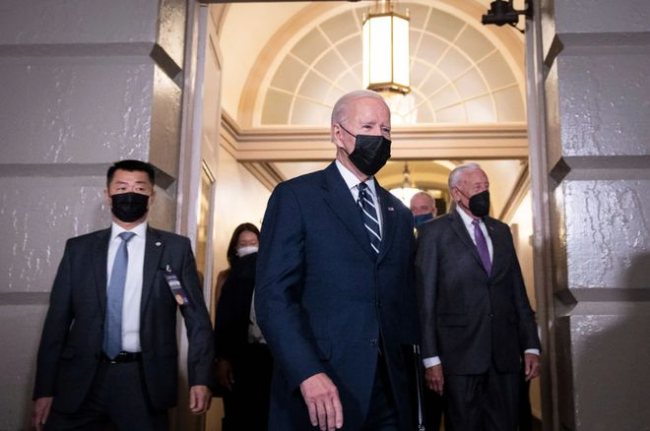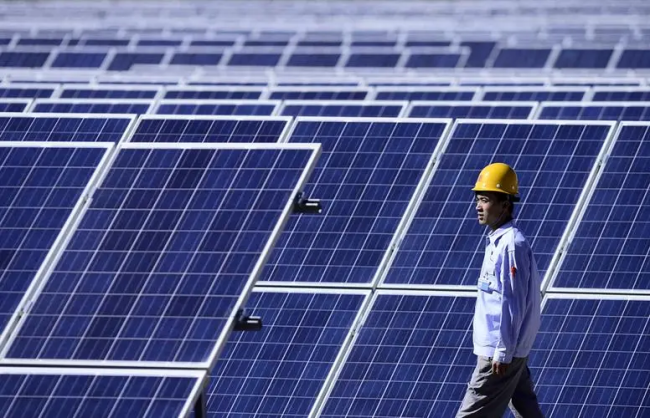According to an exclusive report by Reuters on March 6, White House officials confirmed on the same day that after months of stalemate, the United States began to release solar panels imported from China. Relevant Chinese companies have also confirmed signs of easing. The interviewed scholars said that the production capacity of the United States cannot meet its own needs and cannot be separated from related Chinese products. Developed countries and developing countries should jointly address climate change, and the optimal allocation of resources on a global scale is the best option.
Reuters reported that Podesta, White House senior adviser on clean energy affairs, confirmed on the 6th during an international energy conference in Houston that the number of solar panels imported by the United States from China has increased. “With more clarity on the rules, we’re seeing more shipments go through customs,” he said, without elaborating on the number of solar panels that have cleared recently. According to Reuters, it is a relief for Chinese suppliers to finally enter the lucrative US market after a long impasse. This includes Trina Solar. A U.S. spokesman for the company said that more than 900 megawatts of solar panels have been cleared in the U.S. over the past four months, with less than 1% of those products held up for inspection, enough to power more than 150,000 homes. It is reported that the shipment of JinkoSolar, another Chinese photovoltaic cell producer, has also been released from detention.

On June 21, 2022, the so-called "Prevention of Forced Uyghur Labor Act" signed by US President Biden came into effect. The law bans the import of goods from China's Xinjiang region without providing valid supporting documents. As a result, US Customs and Border Protection unreasonably seized solar energy equipment imported from China in the name of "Xinjiang Human Rights", causing a large number of photovoltaic spare parts to be stranded. According to Reuters, as of October last year, more than 1,000 batches of solar modules worth hundreds of millions of dollars had been backlogged at U.S. ports. According to industry sources, these products are mainly produced by Trina Solar, JinkoSolar and Longi Green Energy, and the supply of these Chinese companies accounts for about 1/3 of the solar panel supply in the United States.
The Chinese side has repeatedly sternly refuted the US's implementation of the evil laws related to Xinjiang. The Chinese Ministry of Foreign Affairs previously responded that the United States, based on lies, formulated and implemented evil laws related to Xinjiang, which seriously interfered with the normal trade of photovoltaic products between China and the United States, seriously violated market laws and international economic and trade rules, and seriously damaged the stability of the global photovoltaic industry chain and the effects of global response to climate change, will ultimately harm self-interest.
The "Inflation Reduction Act" passed by the Biden administration last year stated that it will invest about US$430 billion in areas such as climate and clean energy in the next ten years. U.S. Republican lawmakers have warned the Biden administration that the implementation of clean energy goals should not ignore import restrictions on Chinese photovoltaic products. Facts have proved that the unreasonable suppression by the United States is indeed shooting itself in the foot. According to the "Nikkei News Network", as trade restrictions on China hinder the import of key low-cost spare parts and materials for photovoltaic equipment, the new installed capacity of solar energy in the United States in 2022 is estimated to be 23% lower than the previous year.

The reason why the United States released Chinese solar panels this time is very simple, that is, without Chinese solar panels, it is difficult for the United States to complete its own renewable energy development goals. ''Unable to compete and inseparable' is the reason why the United States loves and hates Chinese solar products. In fact, American manufacturers cannot compete with Chinese companies. Both are similar in quality and technology, but Chinese products are much cheaper. Restricting Chinese companies is essentially to protect the domestic industry in the United States. The purpose of the Biden administration's adoption of the "Inflation Reduction Act" is also to try to contain China in an all-round way. But such containment is "unrealistic" in areas such as renewable energy and the fight against climate change. Because of its high cost and complicated process, it is urgent to deal with these issues, which should be solved jointly by developed countries and developing countries. Therefore, optimizing the allocation of resources on a global scale is the best option.
Energy conservation and emission reduction is the common pursuit of the whole world. Unlike the Trump administration, the Biden administration emphasizes green development. But he also reminded that the release is not "once and for all", and the United States will continue to contain and suppress Chinese companies in the future.